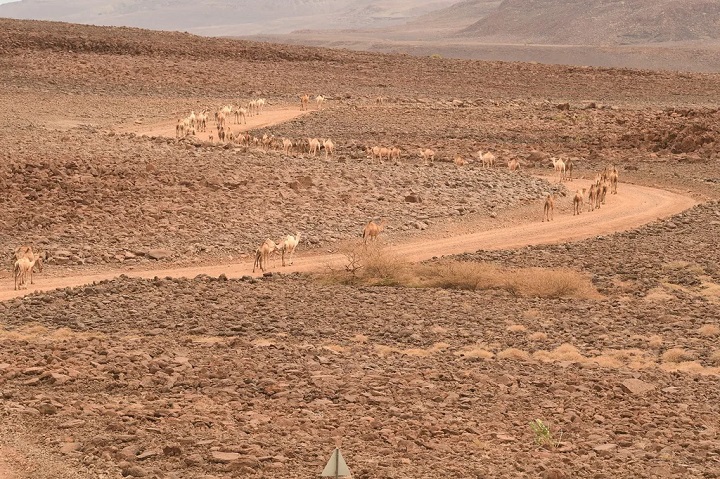11 Dec 2024

Tired Earth
By The Editorial Board

Climate change is already causing famine.
The Horn of Africa is currently in the grip of one of the worst hunger crises of the last 70 years, and global warming has a direct impact on this catastrophe, as rising temperatures mean the region’s also suffering one of the most devastating droughts in decades. Millions of people’s lives are currently at risk due to failed harvests, mass livestock deaths and water shortages.
As this unfolding disaster demonstrates, the climate emergency and starvation are linked. After all, you can’t farm arid, infertile or flooded land, and extreme weather patterns are making it harder for farmers to produce food all over the world. The problem is worse in the Global South, however, where the climate is already hotter.
Kicking off today, Africa Climate Week will feature food security high on its agenda. We need an urgent global effort to improve food security and shape climate resilience, thereby preventing more mass famine. And it’s not just governments and politicians who need to act, the private sector bears a big responsibility too.
As things currently stand, 350 companies account for more than half of the world’s food and agriculture revenue — and many of them have a presence in the Global South. Directly employing over 23 million people, these influential businesses have a disproportionate impact on food systems through their supply chains.
At the World Benchmarking Alliance, we hold the world’s most powerful companies to account for their climate change efforts, giving them the tools to measure their progress toward meeting the United Nations’ goal of achieving “Zero Hunger.” And our research shows these 350 influential food and agriculture businesses aren’t on track to transition to a sustainable food system, which would keep the planet healthy and everyone fed.
Many companies are simply continuing to operate as if it’s business as usual. And too many of them that dominate our global food system aren’t putting people at the heart of their business, or addressing their environmental impact.
Providing sustainable livelihoods for farmers, decent employment for workers and nutritious choices for consumers — without depleting natural resources — is essential. Yet, most key companies perform very poorly in these areas. For example, only 26 out of the 350 have even set reduction targets for greenhouse gas emissions aligned with the Paris Agreement, while 189 of them are yet to set deforestation targets.
Without these companies, we can’t drive the changes that will create a fairer, greener and more efficient food system. And as temperatures continue to rise, global food and agricultural businesses need to recognize the inextricable link between tackling climate change and eradicating hunger. Put simply, the private sector has an essential role in ensuring everyone has enough to eat.
The way for big corporates to improve food security and climate resilience in Africa is to empower farmers — especially smallholders, who make up the continent’s primary food producers. They should be supported to increase food production, meet future food demands and end hunger without depleting natural resources.
This can all realistically be achieved. For a start, companies should provide these farmers with access to good quality seeds, as well as agrochemicals like fertilizers and pesticides. They must introduce them to other reputable global traders and buyers as well, so they can widen their customer base. Crucially, global companies should also support African farmers’ transition to regenerative agriculture — a conservation approach to farming, designed to work in harmony with nature by prioritizing soil health and biodiversity.
As well as helping achieve the U.N.’s Sustainable Development Goals, this strategy is also the best way forward economically. Companies can double food production and income, while creating more resilient supply chains. It’s an environmental and socioeconomic win.
However, this support must be offered in a spirit of partnership. As the power of developing economies grows, world geopolitics are shifting, and Africa is fast moving from climate victim to climate vanguard. With 60 percent of its population aged under 25, the continent has a growing young workforce and unparalleled expertise in terms of food production on the very frontline of the climate crisis. There is much the West can learn here.
We are living in unstable times, and feeding the world is becoming harder. Ongoing conflicts and the COVID-19 pandemic have disrupted the global food system, and supply chains have been broken or altered. Food prices are rising, and climate change is making the situation much worse.
All these issues contributed to the current famine in East Africa. And all these issues will continue to converge and create more hunger in other parts of the world — unless we act now.
The consequences of not doing so are unthinkable.
Source : politico.eu
Comment